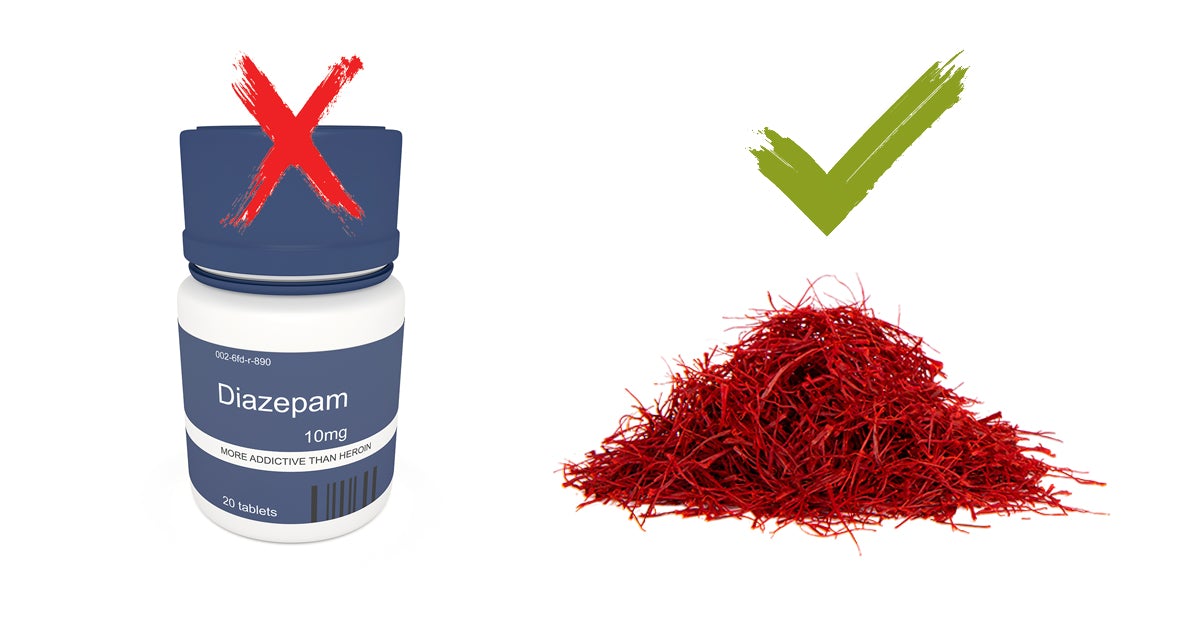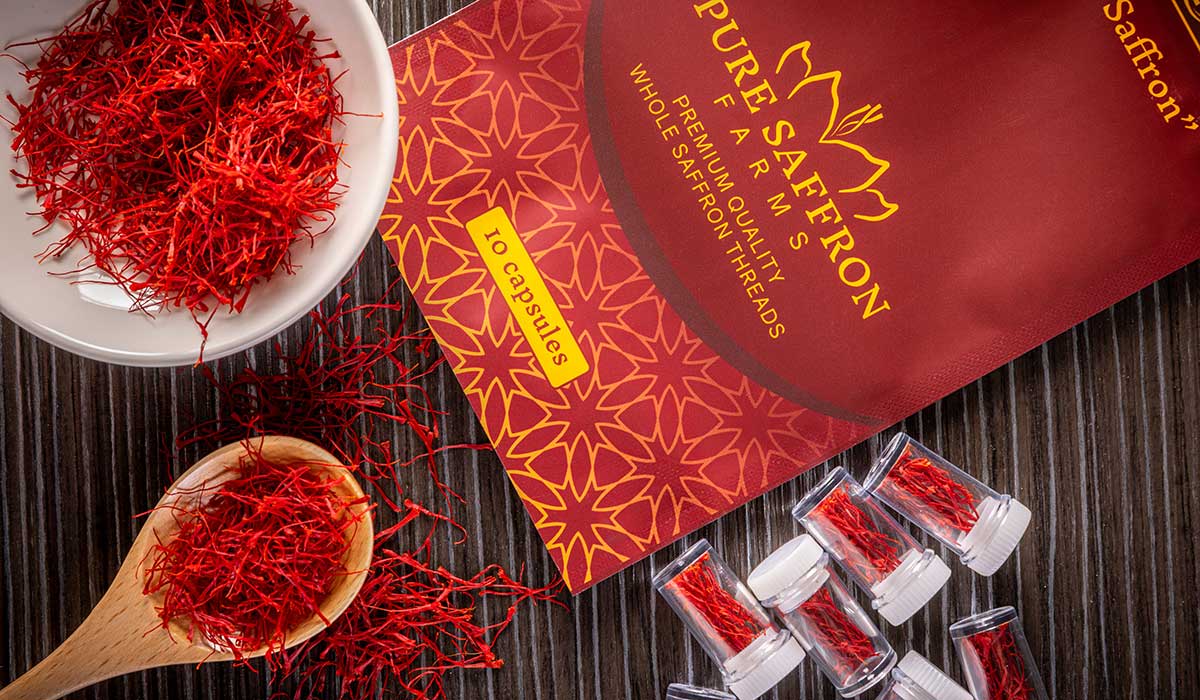Blogs
Can Saffron Help Reduce Anxiety
In this article:
- Understanding anxiety and its implications
- Anxiety and saffron
- Current research on anxiety and saffron
- Using saffron to reduce your anxiety & Other ways to manage anxiety
Reading time: three minutes
Understanding Anxiety
Anxiety, while usually perceived at as a modern affliction, was first recorded by Greek physicians potentially as far back as 400BC. While you couldn’t say that it was described how a clinician would describe it in today’s medical terms, several hallmarks of anxiety ring true in the ancient recordings. Depression, another common modern problem can be described as a longer state of malaise, whereas anxiety often sets upon someone suddenly and furiously. Critical thinking grinds to a halt, your body has a strong physiological reaction, and there’s an overwhelming urge to escape the situation or you might feel like you will descend into a permanent state of madness.
Of course, that’s not what happens. We find coping mechanisms, we learn to understand what triggers our anxieties, and we can seek help when necessary. Anxiety is a terrible thing to live with but the great news is that by being proactive with your anxiety it’s highly manageable. Both short term and long term therapies are readily available, from medical intervention to breathing techniques, or preforming a type of mental checksum, to reboot your perception of “the current now”.

Anxiety and Saffron
Saffron has been scientifically noted to have several positive effects on mental well-being, especially when it comes to depression. Depression and anxiety are different conditions, but also cousins that can act in concert. Having both is not uncommon. While there’s strong argument that saffron can play a positive non-toxic role in managing depression, we can’t quite claim that by extension – it’s going to have the same effects on anxiety. Anxiety and saffron research is much more in its infancy; while there is likely a benefit, and it can help with anxiety, more work has to be done to accurately weigh the true total benefit.
Can we recommend blending decaffeinated saffron tea as a ritualistic, calming routine you can initiate when experiencing an anxiety attack for example? We absolutely can.
Current Research on Anxiety and Saffron
In this study saffron was shown to have an anxiolytic (anti-anxiety) effect at low doses similar to much more powerful manufactured medicines such as diazepam, which in and of itself, is quite incredible. Although highly encouraging, and worthy of further research, the issue with this study is that it was performed on mice, not humans. More research is needed to make sure that you do not begin aggressively grooming yourself in the living room, eating wood chips and building a nest – clearly we’re joking, saffron is extremely safe and its lack of toxicity compared to standard (and effective) treatments is one of the most notable things that continues to drive further research on saffron and mental well-being.

Using Saffron to Reduce your Anxiety & Other Ways to Manage Anxiety
Some online sources may recommend taking saffron extract to manage your anxiety. That may be alright but the research isn’t quite there yet. As mentioned above we recommend making a nice saffron tea. There’s as much to the process of taking control of your anxiety in a positive, routine based way (in this case, the act of making tea) as there is to the chemical benefits to the tea itself – at least as far as we currently understand it – check back for updates on this.
Making a decaffeinated saffron tea to manage anxiety is as simple as putting three or four strands into one cup of boiled water, with a pinch of something sweet like sugar or honey to taste. You can try adding mint leaves as well as a fun little experiment.
All anxiety isn’t alike. Sometimes you may experience an acute overwhelming attack, other times there may be a tiny “doom voice” trying to tell you something way in the back of your consciousness, lending to a more pervasive sense of unease, than the terror of a full blown anxiety attack. There are many ways to deal with both variants and everything in between.
First, there are a few things you can do to reduce the prevalence of any type of anxiety. This never comes as a surprise – we know. Healthy diet, appropriate amounts of restful sleep, and exercise will often reduce the number of times you have to proceed to “stage two” and actively manage the onset of an attack, small or large. When experiencing a direct attack you can try things like distracting yourself with activities that have sensory input. A slow bicycle ride, cold shower, cooking, elevator music – perhaps even making that warm cup of saffron tea we like to recommend. A few common techniques that can be employed are things like breathing exercises, counting back from 100, multiplication tables. These are aimed at derailing the anxiety attack and regaining control of your inner mental dialogue.

Managing an acute attack is a learned skill, and it’s a skill everyone can learn, but it might take time. If something acute sets off your attacks like a smell, taste or sound, the first step to beating it is identifying it. Some people unwittingly coffee, cola & alcohol themselves into anxiety attacks for years without realizing the trigger mechanism is fairly easy to adjust. Find the trigger and decide if it’s manageable with small lifestyle changes or if it’s something you might need to contact a medical professional about.
Have you tried using saffron to help reduce anxiety? If you have, share your experience in the comments below.